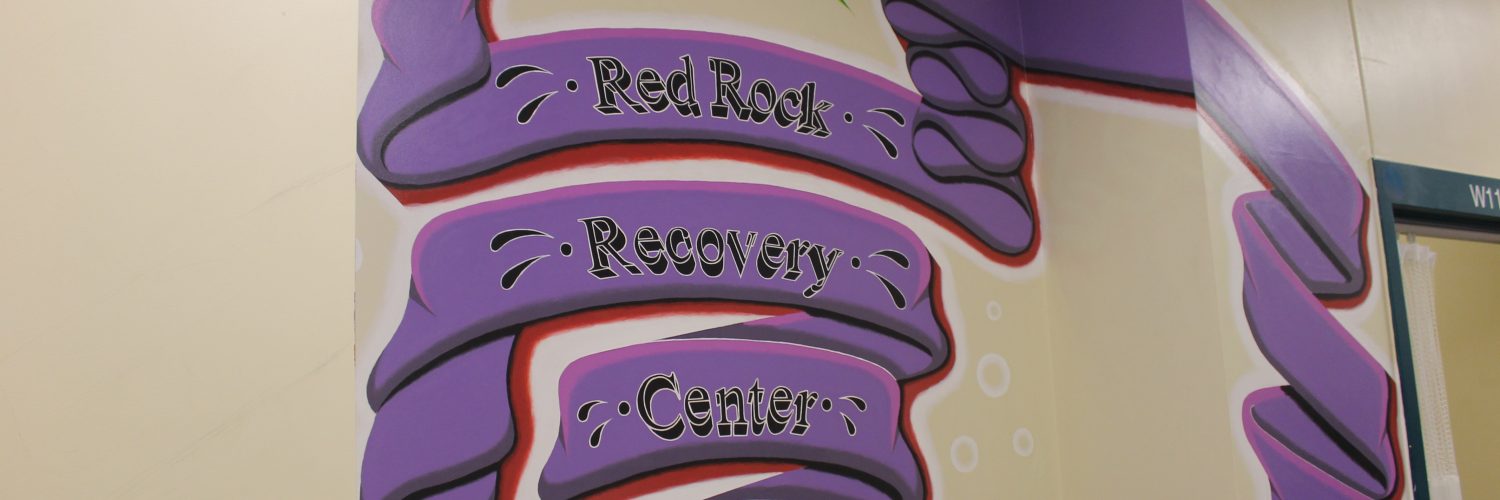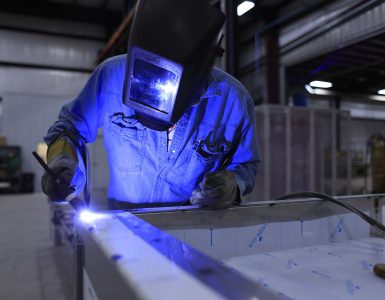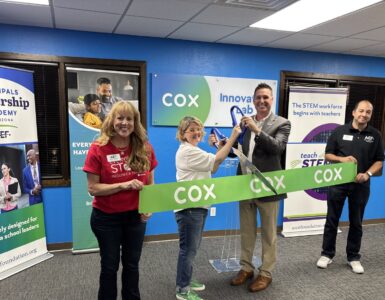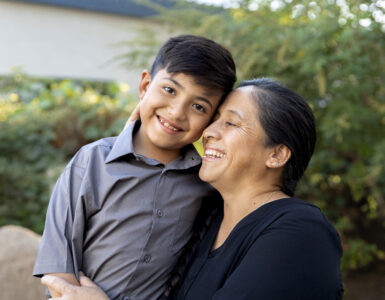There are more than 42,000 inmates within the Arizona correctional system. Nearly all of them will one day rejoin society.
When that happens, Governor Doug Ducey wants to make sure they’re successful. That’s why the Governor has made it such a priority to support job training, rehabilitation, counseling and other correctional services to reduce the likelihood of inmates returning to prison following their release.
That same approach is echoed by CoreCivic, a state contractor and operator of multiple correctional facilities across central Arizona. CoreCivic developed Go Further, an evidence-based program designed to give inmates the best possible chance to succeed upon reentry into society.
Warden Bruno Stole of Red Rock Correctional Center, in Eloy, called Go Further “very, very powerful…It’s been very successful here and it’s made a difference.”
One of the Red Rock inmates positively impacted by the program is John Zurawski.

He entered the correctional system in 1999, following his conviction for a string of crimes, including stalking, eluding police and multiple armed robberies.
Zurawski said addiction and a messy divorce led him down a path of crime. Incarceration gave him a chance to reset his life and reflect.
“It was a very dark period of my life and very uncomfortable period,” Zurawski said. “Once I got arrested, it was kind of like taking a deep, deep inhale – like, ‘okay, this is over. Finally, I can stop doing this.’ Everything happens for a reason. I had to come to prison to figure out that I’m a teacher.”
In 2015, Zurawski was transferred to CoreCivic’s Red Rock Correctional Center, where he now teaches a stress reduction class through the prison’s Go Further program.
Maria Moss-Appleton, a Red Rock case manager, has worked with inmates participating in Go Further since it was implemented as a pilot program in 2017.
“I immediately jumped at the idea because I love to teach. It’s my passion,” Moss-Appleton said. “I just jumped at the opportunity.”

Go Further process planning starts on the first day of an inmate’s incarceration. A team assesses the inmate to identify potential barriers to reentry and develop a plan to address any needs or deficits – including with education, substance abuse and life skills.
“It’s the four interactive journals,” Dr. Greg Fizer, Red Rock Assistant Warden of Inmate Programs, said. “The concept itself is a process of preparing for reentry…whether that be religion-based, educational, vocational, cognitive restructuring – anything that leads that individual to make some transformation that they can sustain.”
Go Further is designed to reduce recidivism by encouraging inmates to participate in a comprehensive assortment of educational courses and training workshops, including cognitive restructuring, career counseling, life skills, and academic and vocational coursework, as well as substance abuse treatment, and mental health services.
“We tell them from day one, ‘What you put in is what you get out of it,’” said Moss-Appleton. “We have a passionate group of people here, including myself. We provide them with the resources that are going to definitely help them to continue to be successful [after reentry].”
To Zurawski, the biggest benefit for inmates is the sense of community among those participating in the program.
“At our human core, I think we all want better for ourselves and for the next generation,” Zurawski said.

A reentry preparation focus at the Red Rock Correctional Center has resulted in the following program milestones so far this year: 52 GEDs, 98 CTE certificates, 44 Victim Impact Program completions, 49 inmates enrolled in distant learning classes at Rio Salado Community College and a 91 percent completion rate in the substance abuse treatment program.
“Once you start to develop positive functioning [and] coping skills, what you’re really doing is leaving that [former] lifestyle behind,” Zurawski said. “Go Further is giving these guys the opportunity to find that in themselves.”
Moss-Appleton said the program helps inmates change how they view themselves and interact with other people and society at-large.
“It’s you sitting in a group with these individuals for a one-on-one, showing that you care and imploring these guys to do better,” she said. “I tell them all the time, that aggressive nature that you had or that aggressive behavior that led you to committing crimes … why not use that aggressive behavior to do something positive?”
As individuals in Go Further near release, they continue to work on their Life Plan and Arizona Corrections Plan to improve their chances of success upon reentry. As part of his planning and personal growth process, Zurawski is currently working on publishing his book.
The topic is one he knows well: stress reduction for inmates.

“It’s been a long process,” Zurawski said. “I’m right now probably at the end of the process, and I can see, feel and taste the finish line right in front of me – which is a huge accomplishment.”
In January, 36 Red Rock inmates graduated from Go Further.
Another 42 inmates will commemorate their completion of the program at the next graduation ceremony on May 23.
For more information about Go Further, click here.
















Add comment